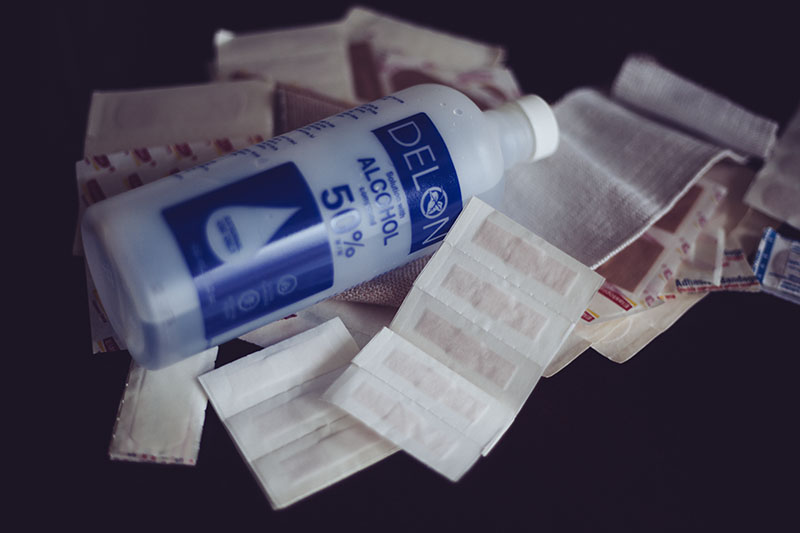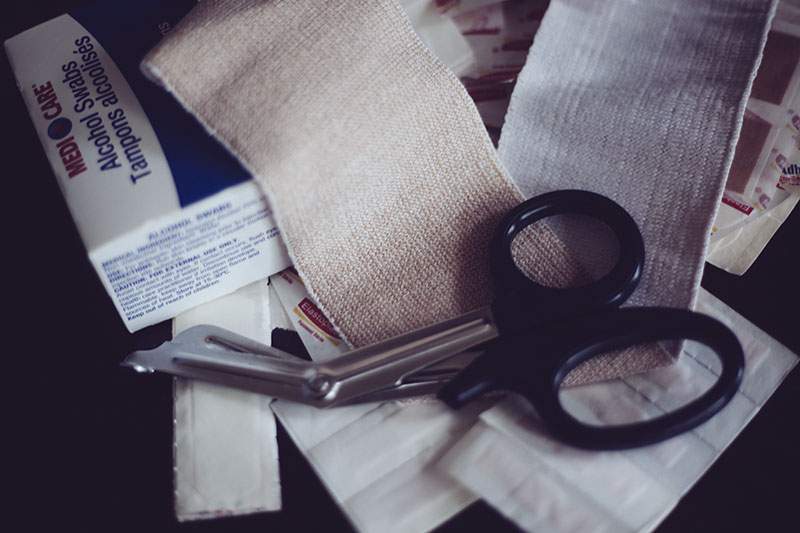While you can have the very best intentions trying to lend a hand by assisting medically with emergencies, being a Good Samaritan unfortunately doesn’t win you enough brownie points to always protect you from the legal pitfalls that can occur because you were just trying to help.
It’s unfortunate, that’s for sure, but in this politically correct world within which we now live, we have to be evermore prudent with regards to how direct and open we are when helping. The reality is that however good our intentions may be, others may see the help we attempt to provide as harm, and if this ever happens to be the case, you may end up on the receiving end of quite a nasty lawsuit.
Remember what the road to hell was paved with?

In North America, while Good Samaritan laws may not be codified into legal statutes, there are general principles related to them that are typically accepted. If someone (regardless of any relationship you may or may not have with them) needs your help under extreme duress, for instance after a car accident, then you as the “Good Samaritan” typically should not be held legally accountable for any negligence with regards to the provided (or not provided) help. Obviously, this excludes gross negligence, in which case you may still be liable, but even that’s a tricky one, and how gross negligence is dealt with varies from state to state.
Negligence is important to discuss because not all first aiders have the same level of medical training, and as such, it’s unreasonable to hold them all to the same standard of care. What it comes down to, and the law does acknowledge this, is that each person will try to help with their varied level of competence, which in turn means that if you help out a stranger or if a doctor happened to be nearby and helped that stranger instead, each individual’s help will result in differing outcomes. Obviously, the individual requiring aid did not hire you (however experienced you may or may not be), and so it’s unreasonable for him or her to complain about the quality of care that you as a complete stranger offered to them during their time of need.
So far this seems pretty straight forward right? As long as you try your best you can’t be in trouble for helping? Wrong.
A number of factors do come into play which you would be deemed liable for if you ignored while trying to help. You should most definitely be aware of these guidelines before actively engaging as a first aider on an emergency scene. Ignoring any of these 4 tips will be putting yourself at huge risk of being in a heap of legal trouble.

How to Stay Out of Legal Trouble as a First Aider
1. Do not force your help on an unwilling person.
This is the big one. If the person under duress happens to be an infant, a young child, or is actually unconscious, then you can step in due to the general assumption that such a person would be willing to consent to help were they in a better position to ask for that help or give consent to it. This is referred to as implied consent. In all other cases, however, do seek verbal consent from the person in need before you begin helping – just to be sure it’s actually what the individual wants.
2. Do not practice unnecessary medical procedures.
Keep a person alive and no more. An emergency situation is not the time to practice your TV-learned medical knowledge. You are not a doctor or a would-be surgeon. I know you’ve probably watched every episode of Greys Anatomy, and you probably do know quite a bit about what needs to get done for a person to be better, but this does not make you qualified to perform unnecessary medical procedures – so don’t!
First aiders should only step into action for emergencies – once the individual is stable, a first aider should should step back and wait for the professionals to come and take over. Obviously, stay with the person and monitor their health until help has arrived, but legally speaking, you want to use common sense and do only what is necessary to keep the person alive and no more.
Don’t overstep; legally, you can get into big trouble if you do.
3. Do not make matters worse.
Along the same lines of not overstepping, know what your limits are when it comes to first aid, and don’t take chances if you think you could possibly be making matters worse. Much like with not practicing unnecessary medical procedures, common sense should here be applied, and you should not make the injury or general predicament worse in an effort to try to help. If you’re confident in your ability to stabilize a person, do so. Otherwise, step back, call for help, stay close, and when the medical practitioners arrive, inform them of what’s been happening.
Needless to say, this one’s for those who are typically headstrong or overconfident. Be wary. Don’t just go pulling people out from under a car wreck without thinking; it can seriously harm a person. Make sure whatever help you’re offering will benefit the individual under duress, and if you think there’s a chance that things will go awry, don’t charge in.
There’s no shame in staying on the sidelines and helping in other ways that are more definitively unlikely to go wrong. Try to calm the person who’s been in the accident down. Reassure him or her that you’ve called for help. Ensure them that the professionals will be arriving soon. You don’t always need to be actively giving first aid to be helping.
4. Do not abandon a person until someone qualified is there to take over.
And finally, if you do take charge and begin to help a person in need after they’ve given consent, do not abandon them. Until you can offset the responsibility to a more qualified individual or group of people, you should not leave the person in need.
Should the person not consent to your help, simply call for emergency medical help and stand by the individual to wait for emergency personnel to arrive. Do whatever you can to minimize any risks and/or traumas, while always respecting the individual’s wishes first and foremost.

If you’ve done all of this, legally and ethically you are on solid ground. When in doubt, always remember to treat others as you would like to be treated; doing so will eliminate 99% of legally dubious situations from the start.
Ask for permission to help first, explain how you’ll be helping, and if consent is given, or if the person is unable to consent because he or she is unconscious or too young to understand the request, then and only then rush in to help. Be sure that whatever you intend to do stands no chance of making the situation worse, don’t do anything unnecessary, and don’t abandon the person you’ve begun to help; follow these directions and you’ve laid the groundwork for staying out of legal trouble for just trying to help out.
More First Aid Resources
When it comes to first aid, you need two important things to help you on your quest to keep yourself and those around you safe & healthy: knowledge and (to a lesser extent) supplies. To tackle the prior, take a look through our list of the top 22 emergency & survival first aid books and grab those that you think will best help you gain the knowledge you’ll need. For the latter, take a look at our Ultimate First Aid Supplies List to see if there’s anything you should be adding to your at-home first aid supplies stockpile, or if there’s something you’ve forgotten to add to one of your first aid kits.
Do you know how to tell if a cut is infected, whether to use Advil, Tylenol, or Aspirin, and how to quickly assess and address emergency situations? Did you know you can superglue cuts and that Imodium is an excellent tool for survival?
Got some extra time? You can quickly browse through the first aid articles published on this blog, to see if there’s anything valuable you’ve yet to learn on the topics we’ve written about.
Brilliant article. This is the first time I’ve seen this being discussed and it’s something we should all keep in mind.
In the UK because of this they Have changed ABC. There is no more ‘C’ anymore, instead of checking someone’s pulse you are taught to check for signs of life instead. I think the change was brought about as a person in need accused a first aider of trying to strangle them when in fact the first aider was just checking for a pulse.
Although there is no Hippocratic oath for first aider’s we should all keep in mind that First aid is meant to help and not hinder. We should all remember that we don’t suddenly turn into “house” when we start with “hello my name is (insert name) i’m a first aider and i’m here to help”
A hello from me in the UK also!
Sam.
Howdy from Canada!
I guess volunteer first aiders are such a rare thing these days that some people just don’t know how to handle a stranger helping them “hands on”. Its a shame but its the world we live in.
Thanks for dropping by Sam!
Great Article…Thanks for that.
Sometimes i read where folks walk on by others in distress on the street..do not even look back. I myself would not want to get locked up for even trying.
A neighbor of my Mom’s died of a heart attack not long ago…shoveling snow.
Happened to be a Priest walking by…administered The Last Rites. True Story.
I keep ammonia caps in my first aid kit. Even that may be too risky..
I keep metered sublingual nitro in my bug out bag…i am assuming that only in the event of the breakdown of law and order..or anonymous isolation that it would be then ok to help out a heart attack victim with what they need.
Ironic…
There certainly seems to be a lot more hesitation to help these days. Still, I do really hate hearing stories of terrible things taking place with no one stopping to try to lend a hand – it’s awful to walk by and not at least ask if help is needed (if it looks like it might be).
great info.
Thanks, Dave!
It’s a shame when common sense has to be taught. :) Thanks for the article it will help those that don’t get it.
Indeed, thanks for dropping by Eevie!